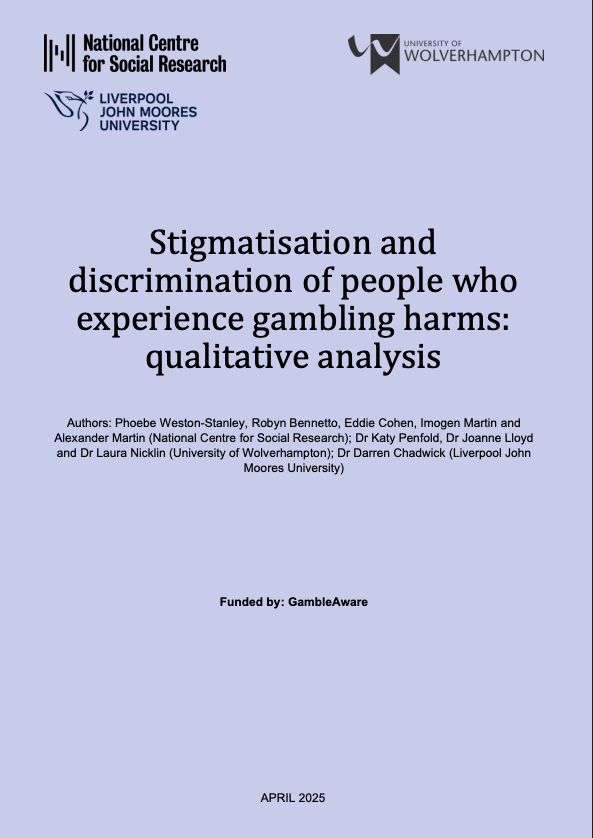Stigmatisation and discrimination of people who experience gambling harms: qualitative analysis
Author: Phoebe Weston-Stanley, Robyn Bennetto, Eddie Cohen, Imogen Martin and Alexander Martin (National Centre for Social Research); Dr Katy Penfold, Dr Joanne Lloyd and Dr Laura Nicklin (University of Wolverhampton); Dr Darren Chadwick (Liverpool John Moores University) Published: June 2025Stigmatisation and discrimination of people who experience gambling harms: qualitative analysis
Author: Phoebe Weston-Stanley, Robyn Bennetto, Eddie Cohen, Imogen Martin and Alexander Martin (National Centre for Social Research); Dr Katy Penfold, Dr Joanne Lloyd and Dr Laura Nicklin (University of Wolverhampton); Dr Darren Chadwick (Liverpool John Moores University) Published: June 2025
Stigmatisation and discrimination of people who experience gambling harms: qualitative analysis
Exploration of how people in Great Britain who experience gambling-related harms are affected by stigma and discrimination. https://www.gambleaware.org/our-research/publication-library/articles/stigmatisation-and-discrimination-of-people-who-experience-gambling-harms-qualitative-analysis/


